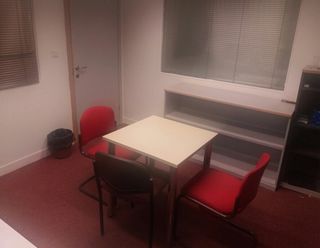Personality
Who Is Afraid of Waiting?
A new study shows how impulsive people feel more irritated and overestimate time
Posted March 4, 2018
Sunday afternoon. I am alone. Nothing seems stimulating. I experience an uncomfortable proximity to myself but I do not know what to do with myself. Boredom involves becoming directly aware of the fact that one is trapped in time. Time passes slowly. Boredom is a healthy emotional reaction, as it leads one to avoid or abandon activities that we don’t like. The only problem is that on this Sunday afternoon I cannot abandon myself. Even the idea of going to the movies or meeting with friends is not appealing. As unpleasant as it may be, in a state of boredom and the extreme experience of time associated with it, we come closest to ourselves. I have written about time experience during boredom in my blog The Case of Boredom: Enduring Empty Time. Here I present results of a study in which we had people actually wait for several minutes without distraction.
Waiting situations are common aspects of modern life: waiting for the dentist, waiting for the plane, waiting for my friend to join me at the restaurant. Modern technology, especially the use of smart phones provides a near perfect way to distract oneself from the situation. But do we all react in a similar way when waiting? Surely not. People cope differently with such as situation. This is what we wanted to find out. How do people react differently in a waiting situation? For her thesis at the University of Sheffield, the City College in Thessaloniki, Greece, Tijana Jokic shut 82 people, one at a time, for 7.5 minutes into a room.

The aim of her study was to create a real waiting situation. Beforehand, participants were asked to hand their electronic devices and watches to the researcher, as well as bags which could contain distracting material. Also, a selection of inventories assessing personality traits had been administered before. This was of course done to later find out how different people experience waiting. The participants who entered the waiting room were told to sit down and simply wait for the researcher to come back; the instructor said that she had to set up a computerized test. The rooms were small and contained a desk and a chair and no clock. After 7.5 minutes the instructor came back and asked the participant to report their subjective impressions regarding the experience of time and the affective reactions during the waiting period. The study results have now been published in the journal Timing & Time Perception. Here is the summary.
1. The main finding regarding the relationship between emotion and subjective time was that the more negatively people experienced the waiting period, the more aroused and the less relaxed they were, the longer they estimated the waiting period to have lasted.
2. The main findings regarding individual differences was that those participants who were more impulsive were less relaxed while waiting and accordingly overestimated duration.
These relationships of emotion and time as well as personality trait and subjective experience are not really surprising but it is the first time that this has been shown in a real waiting situation. How to interpret these results? During the waiting situation people attend more to time. This is especially so because our waiting situation was a period of uncertainty of how long it would last. It is well known that we feel time to pass more slowly when we attend more to time – as opposed to when we are entertained. That is the effect of boredom on time. Moreover, individuals who were more impulsive felt more irritated and overestimated time even more. Impulsiveness as personality trait is characterized by a greater inability to sit and wait quietly for something to happen. Impulsive people want things definitely earlier than later. And they feel more quickly trapped in time when nothing is happening.
We created a natural waiting situation, similar to waiting for an appointment in a doctor’s practice. In future we can us this study design to investigate which factors contribute to a more relaxing waiting situation and to evaluate more or less pleasant waiting environments. We can use this waiting situation to find out how different people react to boredom – when being exposed to themselves and their time.
References
Jokic, T., Zakay, D., & Wittmann, M. (2018). Individual differences in self-rated impulsivity modulate the estimation of time in a real waiting situation. Timing & Time Perception 6, 71 – 89.


